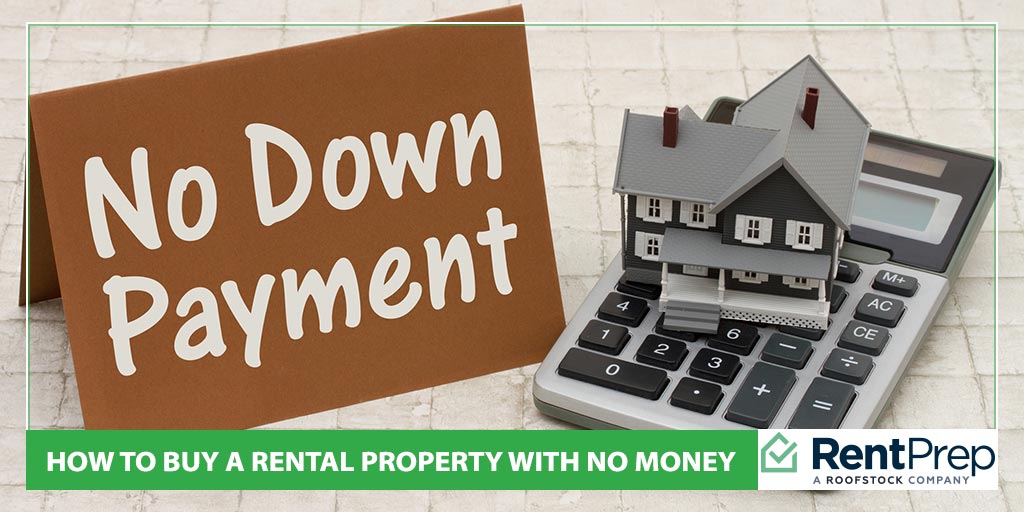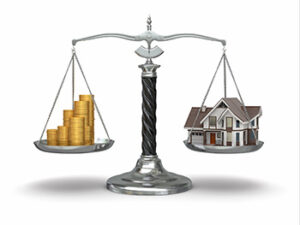
Many people dream of diversifying their income streams through investing in rental properties, which can help you to accumulate high-value assets for your long-term financial security. So why don’t more people do it?
The most significant barrier to investing in a rental property is coming up with the large down payment needed to make the purchase. When you buy to rent, you often need to put down a larger deposit, and you can’t benefit from the many resources designed to help first-time buyers purchase their first home.
So, how can you buy a rental property if you have no money or limited funds to commit to a down payment? In this article, we’ll share several methods that have worked for other property investors and might also work for you.
Of course, each approach comes with its benefits and risks. We’ll also discuss the risks and rewards of no-down-payment property investments, especially when buying to rent.
Table Of Contents: No-Down Payment Rental Purchases
The down payment is often the biggest obstacle when buying a home to rent out and building your property portfolio. Below, you will find ideas for how to overcome this challenge.
- Financing Rental Properties – The Basics
- Affordable Options For Purchasing A Rental Property
- Rewards Of No-Money-Down Rental Properties
- Risks Of No-Money-Down Investments
- FAQs – No-Down-Payment Rental Purchases
- Buy Your First Rental Property
Financing Rental Properties – The Basics

Investing in rental property is not just a great way to develop an additional line of regular income through tenant rental payments. You also gain an asset that should appreciate over time and yield substantial financial gain when sold.
But few people have the money to buy a house outright, so you need financing from a lender. But in most cases, lenders require a significant down payment on the property. This reduces their risk and ensures the borrower has a substantial stake in the investment.
Often, the lender requires a higher down payment if you want to buy a property to rent out rather than to live in. This is because lenders assume, based on experience, that you have less personal investment in the property and, therefore, represent a higher risk of default.
You can find financing to buy a rental property without a big down payment. But these loans aren’t always easy to come by, and while they have the benefit that you can start expanding your property portfolio without access to significant savings, they all also come with risks.
Affordable Options For Purchasing A Rental Property
Below are some ways you can purchase a rental property when you don’t have the funds for a standard deposit. These have worked for property investors in the past, but they all depend on specific circumstances.
Most of these methods assume you already own a home as your primary residence, but they may also work for you if you are not yet on the property ladder.
1. Get A HELOC On Your Existing Home
If you already own a home or other properties, you can leverage these assets to cover the deposit on a new property. This is called a home equity line of credit (HELOC), where the equity you have in your home can be used in place of a deposit.
The equity in your home is the value of your home minus what you still owe on mortgages and other loans. This can fluctuate, and lenders tend to estimate conservatively for that reason. Therefore, you may be able to borrow less against your home’s equity than you might imagine.
Also, HELOC loans come with a risk: If something does go wrong with your rental property loan, your other property can also be at risk as collateral.
2. Get An FHA Loan For A Multi-Unit Property
FHA loans are backed by the Federal Housing Administration and are designed to help people who can’t get a big deposit together or have a low credit score to buy a home. They offer very low deposit rates depending on your credit score. For example, if you have a score of 580 or higher, you often only need a 3.5% deposit.
However, you can only get an FHA loan to buy a property you intend to live in and will move into within the next 60 days. So, how does that help you break into the rental market? You can use the loan to buy a multi-unit property on the condition that you will live in one of the units. But you can start renting out the rest of the units right away.
Listen to our podcast on investing in multi-family properties here.
3. Convert Your Current Residence Into A Rental Property
This approach doesn’t come with zero down payment but a much lower down payment requirement than purchasing a property specifically to rent.
Usually, when you purchase a property to rent rather than as your primary residence, lenders require a large down payment. This could be as high as 30%, as opposed to 10-15% for a house you will live in. This is because the risk is theoretically higher, as trends suggest that you are more likely to default on payments for a home you don’t live in.
Assuming you already purchased your primary home with a lower deposit, you can convert it into a rental. You can then buy a new home as your primary residence and benefit from the lower deposit rate again.
Interest rates also tend to be higher when you borrow to buy a house to rent. So, while it can be inconvenient to move out of your home, the savings can add up when building your property portfolio.
4. Seller Financing Or Rent To Buy
If you’re buying from a private seller, they may have systems in place to finance the purchase. This is often the case with big real estate developers selling hundreds or thousands of units. They may agree to purchase financing that does not require a deposit.
Similarly, you may locate a property available to purchase via a rent-to-buy scheme, which again requires no deposit but builds up your equity over time through regular rental payments.
Aside from finding opportunities, the challenge with these approaches is that rental payments tend to be much higher, at least initially. This is because you need to build up your equity in the property to a reasonable level quickly. Therefore, finding tenants willing to pay sufficient rent to cover your full monthly mortgage payment may initially be challenging.
5. Partnerships
While you may have the time and energy to invest in property and manage a rental but no money for a deposit, there are investors with hard cash to invest in property but no time to invest in the process. These can make great partners. They can fund the down payment, at least partially, and you can manage the property.
Of course, finding a good real estate investment partner can be challenging. It often requires extensive networking within real estate circles. If you don’t already know someone personally, it can be hard work. You also need to do your research and have detailed contracts in place. You will be in a financial arrangement with this person for years to come.
If you are dealing with family or friends, you might arrange a private loan instead of seeking a partnership. This type of loan can have more flexible terms and conditions than a bank loan, perhaps with a longer period before you have to start paying it back.
Read our complete guide to managing joint ventures in real estate here.
Rewards Of No-Money-Down Rental Properties
If you can find ways to purchase a rental property without the burden of having to come up with a down payment, there are many benefits:
- You can break into the rental property market without the need to save a significant amount of money in advance.
- You can diversify your investment portfolio by spreading your capital across multiple properties, which can help protect you against some market fluctuations.
- You can increase the value of your investments through things such as property improvements.
- You can generate a steady cash flow to support other investments.
- You can benefit from a greater return on investment over time as rent tends to increase while loan repayments can decrease.
- You can deduct property-related investments such as mortgage interest, insurance, and maintenance from your taxes.
Risks Of No-Money-Down Investments

While adding a rental property to your portfolio without having to get together a big deposit for a down payment sounds like nothing but a boon, there are serious risks to consider before deciding whether this is the right path for you.
It Increases Your Debt
When you aren’t putting money down at the start of the investment, you dramatically increase the debt you’re taking on. This can strain your finances greatly, especially if you end up owing more each month than you can generate through rent.
Periods of vacancy will also become a major risk. You need to consider whether you have the financial security and safety nets to take on this level of debt.
Negative Equity
While we anticipate that our properties will increase in value over time, housing markets are unpredictable, and this is not always the case. If your property decreases in value, you can find yourself with negative equity. This means you can end up paying more than the property is worth.
Slow Equity Accumulation
When you don’t put down a deposit, you initially own very little equity in your investment. This greatly reduces your flexibility in selling, refinancing, or leveraging that particular property for further investments.
Limited Property Choices
Depending on the path you choose, when you purchase a no-down-payment property, you’re often limiting your choices as the property must often be in a specific location. This means you may find yourself saddled with a property you don’t really want and, in retrospect, may wish you had found the money to invest in a more desirable property.
Legal And Tax Implications
No-money-down deals often come with complex terms and conditions that can affect both your legal status in an agreement and your tax liability. It’s important to read contracts and documents and fully understand the implications before committing.
FAQs – No-Down-Payment Rental Purchases
Below are answers to some of the most frequently asked questions about buying rental properties without money for a deposit.
Is it really possible to invest in a rental property with no down payment?
Yes, it is possible, though it’s uncommon in traditional real estate transactions. Investors typically use creative financing strategies such as seller financing, lease options, partnerships, or qualifying for certain government loan programs that require little to no down payment.
How do I find properties suitable for no-money-down investments?
Look for properties where sellers are open to creative financing. Networking with real estate agents, joining real estate investment groups, and attending property auctions can be good strategies. Properties in less competitive markets or those needing repairs might be more amenable to creative financing terms.
What risks should I be aware of with no-money-down investments?
Answer: high financial risk due to increased debt, potential negative equity, higher interest rates and loan fees, dependence on rental income, market volatility, slow equity building, and possible compromises on property quality and location.
How can I ensure a positive cash flow in a no-money-down rental property?
Carefully analyze the property’s potential rental income, ensure it exceeds all expenses (mortgage, taxes, insurance, maintenance, etc.), consider its location and condition, and prepare for contingencies like vacancies or unexpected repairs.
Buy Your First Rental Property
Buying your first rental property can be a challenging but rewarding experience both in terms of expanding your financial portfolio and learning about the property market. Since building a big enough deposit to purchase a rental property is often the most significant barrier to access, getting a rental property with no down payment can be a great way to get started.
But keep in mind that when you don’t have the money to put down a deposit on a rental property, you also increase your risk. You need to have contingency plans to protect yourself in case the unexpected happens.
Read next: Benefits of Property Management vs Self-Managing.
Note: RentPrep does not provide tax, legal or accounting advice. This material has been prepared for informational purposes only and is not intended to provide, and should not be relied on for, tax, legal, or accounting advice. You should consult your own tax, legal, or accounting advisors.

